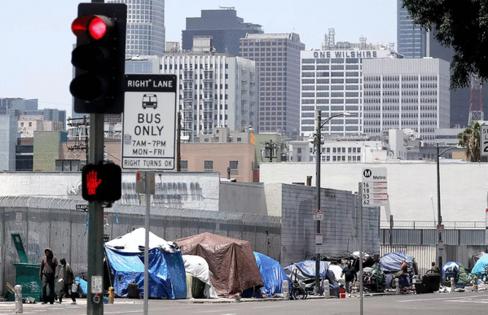Supreme Court rules cities may enforce laws against homeless encampments
Published in News & Features
WASHINGTON — The Supreme Court ruled Friday that cities in California and the West may enforce laws restricting homeless encampments on sidewalks and other public property.
In a 6-3 decision, the justices disagreed with the the 9th Circuit Court in San Francisco and ruled it is not "cruel and unusual" punishment for city officials to forbid homeless people from sleeping on the streets or in parks.
"Homelessness is complex," wrote Justice Neil M. Gorsuch for the court. "Its causes are many. So may be the public policy responses required to address it. At bottom, the question this case presents is whether the 8th Amendment grants federal judges primary responsibility for assessing those causes and devising those responses. It does not."
Gorsuch said the 8th Amendment "does not authorize federal judges to wrest those rights and responsibilities from the American people and in their place dictate this nation's homelessness policy."
He was joined by the other conservative justices, while the three liberal justices dissented.
"Sleep is a biological necessity, not a crime," said Justice Sonia Sotomayor said in dissent. "For some people, sleeping outside is their only option. For people with no access to shelter, that punishes them for being homeless. That is unconscionable and unconstitutional. Punishing people for their status is 'cruel and unusual' under the 8th Amendment."
The ruling is a significant victory for city officials in the West and a setback for homeless rights advocates. Since 2018, they had won rulings from the 9th Circuit that held it was unconstitutional to enforce anti-camping laws against people who had no home and nowhere to sleep.
City officials said those rulings led to the growth of tent encampments in Los Angeles and most cities on the West Coast. They joined an appeal to the Supreme Court seeking to clarify their authority over public property.
Nothing in today's decision requires cities or their police to take stronger enforcement action against homeless people, but it will free some of them to do so.
The case before the court arose in Grants Pass, Ore., a city of 38,000 people. It was estimated to have between 50 and 600 people who were homeless and only a few shelters, which lacked space for all of them.
...continued
©2024 Los Angeles Times. Visit at latimes.com. Distributed by Tribune Content Agency, LLC.







Comments